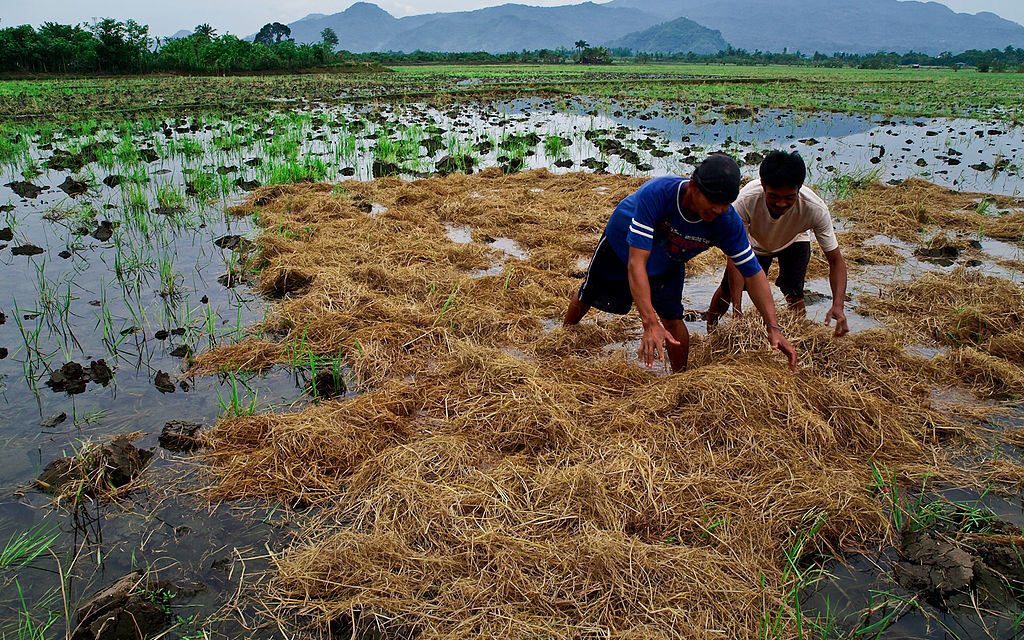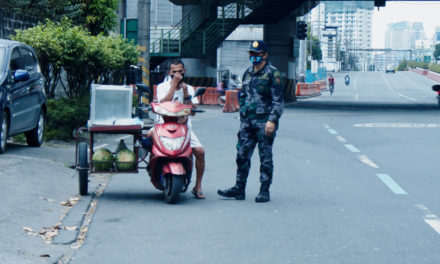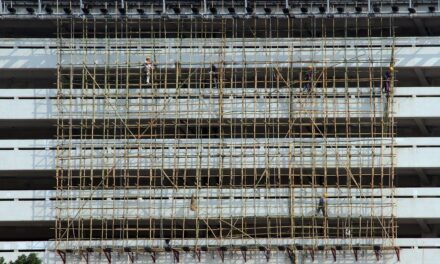Prepared for the CSM Global Synthesis Report on COVID-19. October 2020
Introduction
The COVID-19 pandemic has made visible the stark realities of long-standing, multi-generational social, economic, and political inequality in Asia. Class, social privilege, race/ethnicity, caste, gender, occupation, and age determine who are most vulnerable to the virus, and who suffer the worst impacts of the ‘pandemic package’ which include infection as well as governmental responses to tackle the pandemic. Heredity aside, many pre-existing co-morbidity conditions—diabetes, heart disease, high blood pressure, respiratory/pulmonary conditions and low immunity—exist because of and are exacerbated by existing inequalities, which determine access to good quality, affordable health care; adequate, healthy diets; safe housing, working and living environments; regular clean water supply and sanitation; and income for basic needs and personal protective equipment (PPE).
In much of South and Southeast Asia, neoliberalism has proven to be a critical systemic pre-existing condition, resulting in decades of official neglect of the public realm integral to building robust public health, welfare, and food systems, including public provision of essential goods, services, adequate food and shelter; social protection and justice; environmental regulations; public participation and; fundamental rights and civil liberties. These, combined with the prioritization of global food chains, trade and investment over self-reliance have rendered much of the region’s population vulnerable to food and economic shocks.
Provided here is a synthesis of impacts and responses to COVID-19 in Asia, drawing primarily from experiences in Pakistan, India, Thailand, Cambodia and the Philippines.
Impacts
The impacts of COVID-19 in Asia vary across countries although some commonalities are clearly visible. Social and economic impacts have been compounded by political measures that inhibit public participation, access to information, freedom of speech and association, and enable violence and criminalization of particular ethnicities, religions and castes.
The rapid spread of the coronavirus, lack of coordination and direction across government sectors over containment and treatment protocols, and under-resourcing of public hospitals, health centres and personnel at the front lines of tackling the disease, have resulted in a near collapse of already enfeebled public health systems. Early COVID containment measures and protocols were also confusing and contradictory, reflecting lack of awareness of ground realities, attention to recommendations from health providers, and gender, class and social “blindness.” Containment measures disproportionately hurt small-scale food producers, local vendors, workers (in both formal and informal sectors), and landless peoples who constitute the majority of migrant, manual labourers. Closures of small businesses, neighborhood groceries, local markets, and street vending decreased the availability of staple foods for the majority, as well as decreased jobs and incomes for local food producers and workers. Overall, the loss of incomes, existing debt burdens and additional food and healthcare costs have pushed hundreds of millions into deeper poverty.[1]
Small-scale agricultural and food producers, and landless rural peoples were already facing multiple, long-standing challenges from climate change, land grabbing and land conversions, environmental destruction, expansion of industrial agriculture, capture of water sources, lack of affordable credit, rising indebtedness, and privatization of essential services. COVID-19 related strictures exacerbated these challenges, notably through disruptions to production, storage, distribution and employment. Although reductions in food availability affect the public at large, disruptions of small-scale, localised production, exchange and vending resulted in high levels of food and income insecurity among rural and urban poor.
The most common response by Asian governments in the first few months of the pandemic was to impose lockdowns that severely restricted transport and travel; shut down industry and services (except those deemed essential); halted almost all livelihood and economic activities , and; closed local markets and informal vending that urban and rural poor depend on for income and food. Although mandatory restrictions to contain the spread of the virus were necessary, the lack of sufficient advance notice, planning, preparation, consultation with relevant actors and support/relief measures resulted in tremendous hardships for small-scale food producers, workers, landless peoples and urban poor communities.[2] In some countries, lockdown rules were unclear, and/or selectively and violently applied , causing fear and hardship: for example in India, although agricultural activities and deliveries of essential goods/services were legally permitted, in many states, farmers were prevented from harvesting crops and street vendors were violently attacked by police. In Cambodia, garment workers were prevented from travelling to their home villages although factories closed, and rural communities were blocked by armed police from patrolling forests to report illegal logging and land clearance. In the Philippines and Myanmar, violations of curfews and COVID specific orders were punished by hefty fines and arrests.[3]
In China, Vietnam, Thailand, Singapore, South Korea and the state of Kerala in India, lockdowns were accompanied by testing, contact tracing, isolation, treatment, and social support. But in many countries, lockdowns were practically the sole containment measure, with meagre social-economic support for those without economic reserves to withstand their severity. In Pakistan, India, Thailand, Myanmar, Indonesia and the Philippines, lockdowns left tens of millions of informal sector, agricultural, entertainment, hospitality, construction and domestic workers, and street vendors without incomes, shelter, food, water and healthcare. Most urban and rural poor did not have the means to practice health safety protocols, putting them at high risk of infection. For daily wage earners, the loss of daily incomes resulted in hunger. Restrictions on movement, closures of local markets, absence of credit and lack of required support services hit small-scale food producers hard, setting the stage for food shortages and food price hikes. Across Asia, harsh enforcement of lockdowns exposed women to additional risks in feeding their families and ensuring basic needs.
Closures of restaurants, recreation, and shopping centres resulted in a surge of unemployment and under-employment among youth and migrant workers (domestic and foreign). Importantly, they resulted in complex disruptions of food supplies, reducing the incomes of small-scale food producers. Lockdowns resulted in school closures, which in turn deprived millions of children from poor families of much needed midday meals for children. The availability, adequacy and accessibility of food was a glaring issue for rural landless, urban poor, slum dwellers, informal sector, and migrant workers who do not have the means to produce food and lost incomes to purchase it. In Pakistan the sale of sacrificial animals during Eid-ul Azha fell drastically having a very negative impact on the livelihoods of small-scale and landless farmers.
The COVID-19 crisis has created particular hardships, challenges and risks for women. Regardless of official statistics, women constitute at least 50 % of Asia’s work-force, if one considers agriculture, fisheries, pastoral, forest, domestic, sub-contracted other ‘informal’ work, and employment in the formal sector. Women are responsible for family and community reproductive/care work, which includes managing household finances, feeding the family, caring for children, elderly and the sick, and maintaining the social fabric. The unfolding economic fall-out of the pandemic has increased the burden of women’s care work and stress to find new means of income, and generated additional social pressures. Women garment workers in Cambodia whose work hours and wages have been cut back and whose incomes are necessary to repay family debts, are taking on extremely risky ‘escort’ and entertainment work. In Pakistan, in the early days of the lock down, rural women dairy farmers, a vast majority of whom are small and landless farmers, were unable to sell milk and lost much needed income; in the ensuing months they continued to lose income as milk prices plummeted due to slow down of economic activity. Women who were supplying cooked foods and savories in the market have lost all savings and are unable to continue their small-scale enterprises. Landless households are facing increasing hunger with many reverting to one meal a day.
Despite rhetoric about support to vulnerable and marginalized groups, actual governmental support to workers, peasants, fishers, indigenous peoples, and vulnerable and marginalized populations has been meagre, insufficient and difficult to access because of onerous bureaucratic procedures and requirements. In the guise of economic recovery, many governments have enacted laws and are aggressively proceeding economic plans that favour corporations and their own political interests, with little or no targeted support for local economic and food systems actors and working classes. The Cambodian Government’s special program to support farmers through loans which even if “low-interest,” will not benefit small-scale producers already trapped in debt cycles and in danger of losing their lands as collaterals for additional loans taken to repay old debts.[4] The Indian Government has loosened environmental regulation and labour protection as incentives to corporate investors, allowed infrastructure and mining in ecologically sensitive areas, and passed laws that will undermine the capacities and rights of small-scale food producers (see India box and case studies). The Philippines Government continues to push mining and its Build Build Build infrastructure program and corporate bail-out packages.[5][6]
The pandemic is far from over, and its full range of impacts need to be monitored regularly at multiple levels through coordinated, systemic approaches, with special attention to testimonies from populations whose voices are too often ignored in policy making, especially women.
| India
(For more details, please see India case studies here and here.) India’s nationwide lockdowns that started in the fourth week of March, were arguably the harshest in Asia, with no advance warning to the public; no preparation to provide economic assistance, food and healthcare to vulnerable and marginalized populations; and a near-complete stalling of the economy. The country’s 100 million domestic migrant workers (who include children and mothers with infants)—an estimated 20 percent of India’s workforce—have been the worst sufferers in India’s unplanned, badly executed lockdowns. The construction, leisure, and hospitality industries closed down completely, pushing millions of workers out of work, who were unable to purchase food and survive in the temporary shelters they called home. In April-May 2020, millions of workers walked for days from urban areas to reach their home villages carrying their children, meagre belongings, and even small animals, and were brutalized along the way by shocking acts of police violence and detention in crowded, unsafe and unhealthy camps. Many remained trapped in urban areas, unable to leave, without food, water, sanitation, shelter and money. Particularly alarming has been the targeting of particular religions, ethnicities, social classes and women in these communities, through real world violence, social boycotts, denial of essential services, employment and income opportunities.[7] The lockdowns also trapped migrant fishworkers employed as crew in mechanized fleets or engaged in fish processing, net-making and boat-repair for months in cramped cabins without adequate food, clean water, income, and assistance from their employers or the government. Small-scale fishers across the country were unable to fish, as well as sell fresh catch in local markets. Women fish vendors are among the hardest hit by the loss of access to transportation, markets and income, which has increased their burden of household care work. The impacts of COVID-19 on Indian agriculture have compounded the effects of three decades of neoliberal economic policies that resulted in falling farm incomes and stagnant wages. The lockdowns disrupted the winter crop (rabi) harvests, resulting in huge economic losses to farmers and agricultural workers. Many agricultural workers come from historically marginalized social classes, are landless, and depend on seasonal agricultural work and manual work in urban areas for survival. The extended lockdowns closed off both, rural and urban employment opportunities, leading to severe destitution and serious cash constraints in the present summer/monsoon agricultural season. In the past months, work through the Mahatma Gandhi National Rural Employment Scheme (MGNREGS) was the only respite to the poorer rural households. Three recently passed laws: The Farming Produce Trade and Commerce (Promotion and Facilitation) Act 2020, The Farmers (Empowerment and Protection) Agreement on Price Assurance and Farm Services Act 2020, and The Essential Commodities (Amendment) Act 2020, are being widely opposed across the country for their pro-market, pro-corporate biases. India’s forest and indigenous communities—already reeling under lack of tenure security, threats of eviction and forest destruction for industrial, mining, and infrastructure purposes—lost incomes from not being able to gather and selling non-timber forest products in local markets. Further, lack of awareness about COVID-19, lack of information in appropriate local languages, breakdown of traditional healthcare systems, and absent public health providers/facilities in their areas have increased risks of infection and other diseases among many indigenous communities. |
| Philippines
The COVID-19 pandemic has severely undermined the Philippine healthcare system, eroded the already weak foundations of the national economy, robbed millions of people of their livelihood, and further consolidated and institutionalized the Duterte administration’s dictatorship. Since the onset of the lockdown in March, the Duterte administration has implemented a militaristic approach to contain the transmission of the virus.[8]. There have been various reports of alleged quarantine violators being subject by authorities to hefty fines and inhumane punishments for minor infractions. Even small-scale food providers—whom the government permitted to continue operating during the lockdown—were not spared from the punitive implementation of quarantine policies. Numerous families and communities that rely on small-scale farming, fishing, and animal husbandry have lost not just their main sources of income but also their main sources of food. Without appropriately targeted and timely delivery of , adequate aid, repressive conditions have undermined livelihoods, limited access to food and other necessities, worsened hunger, and led to grave violations of human rights. The burden has been heaviest on women who, under a predominantly patriarchal society, are still expected to be the primary caregivers in the family. The pandemic has aggravated pre-existing conditions of hunger, poverty, and insecurity. During the implementation of the most stringent phase of community quarantine, a total of 2.7 million workers from more than 100,000 establishments nationwide were displaced. On top of job insecurity and the lack of incomes, workers and other vulnerable groups were also beset by the inadequacy of government aid, as well as the irregularity, inefficiency, and politicization of its distribution. Despite the reopening of the economy last June, the losses from months of business closure have caught up with more than 8,000 establishments. Consequently, they were forced to either retrench workers or permanently close down. In total, more than 112,000 workers have lost their jobs in less than two months since the opening up of the economy. Overall, the government estimates that 10 million workers will lose their jobs in 2020 due to the COVID-19 crisis. The Philippines Government has yet to present a credible plan for social and economic recovery that addresses the country’s long standing challenges and newly created vulnerabilities.[9] |
| Erosion of Human Rights and Democracy
Given the seriousness of the disease and the social-economic hardships resulting from governmental responses, peoples’ access to accurate, updated information about the disease, about measures necessary to contain and prevent its spread, and about sources of medical, social and economic support, assume heightened importance. Not only has such information not been made available, but many Asian governments seek to control public discourse about the COVID-19 crisis and have taken advantage of the pandemic to cement authoritarian rule and erode human rights. Emergency powers invoked by governments—ostensibly to control the pandemic–allow them to control all aspects of governance, administration, and security with no democratic oversight. While the fine print may vary across countries, these emergency powers share many dangerous commonalities: full control over financial allocations; power to authorize the use of deadly force through police and military; unlimited surveillance of telecommunications; control of conventional and social media and press; restrictions on freedom of speech, movement, and assembly; unfettered powers to put in place any measures considered necessary in a state of emergency; suspension of constitutional rights, freedoms and due processes of justice; and the authority to determine the period of emergency. The shrinking of democratic spaces and oversight, violations of human rights and fundamental freedoms, muzzling of press and media, criminalization of dissent, and political persecution of members of particular communities/religions—all of these were already on the rise before COVID-19 hit. In the pandemic period, they are justified through the pretext of “protecting the public.” In China, Thailand, Myanmar, Philippines, India, Cambodia, and Indonesia, doctors, nurses, health workers, researchers, journalists, lawyers, bloggers, and social media users have been penalised for sharing information about local/national conditions and/or questioning government measures/actions on the grounds that they are “spreading fake news” and “creating panic and unrest.” Equally alarming are the growing waves of prejudice and social discrimination against particular religious and ethnic communities, genders, working classes and indigenous peoples, holding them responsible for the spread of the virus. |
Responses by Social Movements
In the face of these challenges, organisations of small-scale food producers, workers, indigenous peoples, women, healthcare providers, civil society organisations (CSOs) and human rights advocates joined hands with local service providers and government bodies to organize responses to meet immediate-intermediate food, nutrition, healthcare and economic needs; mobilize and advocate for the defense of human rights, and; develop policy proposals for progressive systems transformations. While the responses have been diverse and context specific, they are based on and reflect important underlying principles: mutual aid, reciprocity and solidarity; redistribution, equality and justice; agency and autonomy; social relationships, commons and the public realm; land, resource and subsistence security, and; human, animal and eco-system health.
Small-scale food producers, cooperatives, businesses and consumers started and/or reinvigorated community farms/gardens, community supported agriculture and fisheries, local markets, and direct sales and deliveries to consumers.[10][11] In India, Thailand and Philippines, workers’ organizations and CSOs collected donations through direct public appeals, and set up community kitchens and deliveries of food and basic necessities to poor households. This was especially important for children, elderly, and destitute people. They organized community-led relief programs in order to address the socioeconomic impacts of the lockdown: for example, the Tri-Peoples’ Organization Against Disasters Foundation (TRIPOD), a group of indigenous peoples, Bangsamoro, and migrants in Mindanao, organized Kusina Bayanihan or “Community Solidarity Kitchens” in conflict-affected areas in Mindanao.
Cooperatively organized efforts include supplemental and alternative livelihoods; training on agroecology and home gardening; restoring watersheds to ensure regular water supply; forest and eco-system protection; community based health education, monitoring, protection and treatment measures, and; strengthening local governance to ensure accurate information gathering and sharing, preventing social discrimination and ensuring timely responses to problems.[12] In many rural areas, people revived barter across communities/sectors to meet their needs: for example, rice-for-fish exchange schemes between farmers and fisherfolk in Thailand; rice and millets for vegetables, corn (for cattle feed) for milk, rice husk (for fish feed) for fish in India; bartering consumer goods for food in the Philippines through online platforms (set up by individuals, not corporations); and food-rice exchanges in Cambodia.
Despite laws prohibiting large gatherings and marches, people across the region have organized to demand social-economic justice, public health and other supports for food producers and workers, and halting discrimination, violence and human rights abuses. Frontline health workers and public health movements have advocated for adequate and timely salaries, hazard pay, PPEs and necessary protections for frontline health personnel and community outreach workers, as well as free COVID-19 testing and treatment for the working classes and poor.
Workers and peasant unions in India, Pakistan, Myanmar, Philippines, Indonesia and Cambodia have organised general strikes and demonstrations demanding decent work, living wages and workers protection; equitable distribution of land especially for landless farmers; reversing privatization of agricultural procurement and public goods/services; rescinding of pro-corporate agriculture, environmental and economic policies and laws; debt cancellation; and an end to violence against women, repressive laws and human rights abuses. Protesters have laid the blame of the terrible atrocities faced by them as a result of COVID-19 on decades of neoliberal policies that have forcefully implemented deregulation, privatization and liberalization. Organisations of forest communities in India have organized and demanded secure forest land rights, education and healthcare facilities for forest communities, government procurement of non-timber forest products (NTFPs) and the extension of rural employment schemes for returning migrant workers. Affected communities have organized to block land-grabbing, mining, deforestation and weakening of environmental regulations in India, Thailand and the Philippines.
Policy proposals
Policy proposals from across the region include putting in place immediate/intermediate relief and rehabilitation measures as well as systemic, structural changes to transform our societies, economies and governance towards ecological sustainability, dignified livelihoods, self-reliance and agency.
The most important, overarching policy proposals in the face of the pandemic are operationalizing food sovereignty[13] with emphasis on access and control over productive resources especially land, seed and water among others; ensuring decent livelihoods and incomes; prioritising the right to safe and nutritious food grown agroecologically to safeguard human, animal and environmental health, and the well-being of all living things to stave off future pandemics and address climate change; strengthening infrastructure for public health, health education, goods, services and welfare; ensuring meaningful public participation and implementation in all policy making; ensuring respect and legal guarantees for the realization of human rights and women’s rights; rolling back and dismantling the power of corporations, and; directing public investment towards strengthening territorially rooted food systems and markets.
In India, numerous policy proposals have been made to respond to the needs of and strengthen the rights of workers, farmers, fishers, forest communities, children, women and urban-rural poor by unions and multi-sectoral platforms.[14][15][16][17] In Cambodia, workers and small-scale farmers have proposed policies for debt relief, wages and social protection. In the Philippines, The National Food Coalition, a broad formation of more than 75 organisations representing farmers, indigenous peoples, fishers, urban dwellers, women, youth, and elderly, proposed the Zero Hunger Bill as early as 2014, which creates the legal framework for the progressive realisation of the right to adequate food and ending hunger.[18][19]
Footnotes
[1] Channel News Asia, “COVID-19 is leaving India hungry in more ways than one”, 5 August 2020.
[2] iDEFEND, “Competent and compassionate leadership to address COVID19 crisis, not emergency powers”, 24 March 2020.
[3] Assistance Association for Political Prisoners (AAPP), “Cases Related to COVID-19 Pandemic”, 18 May 2020.
[4] Khmer Times, “RDAB to provide special loans to boost farming”, 14 July 2020.
[5] VICE, “Land Defenders Are Killed in the Philippines for Protesting Canadian Mining”, 1 October 2020.
[6] Gulf News, “Philippines: $85 billion infrastructure spending in 104 projects”, 1 October 2020.
[7] Citizens Against Hate, “Hit Job: Using COVID-19 to Deepen Anti-Muslim Bias and Weaken Muslim Voice”, 18 May 2020.
[8] iDEFEND, “Competent and compassionate leadership to address COVID19 crisis, not emergency powers”, 24 March 2020.
[9] Focus on the Global South, “The Moribund Duterte Presidency”, 7 August 2020.
[10] Vikalp Sangam, “Extraordinary work of ‘ordinary’ people: beyond pandemics and lockdowns”, 28 May 2020.
[11] Community Forest Rights Learning and Advocacy (CFRLA) and Vikalp Sangam, “COMMUNITY FOREST RIGHTS & THE PANDEMIC: GRAM SABHAS LEAD THE WAY!”, 2 October 2020.
[12] Ibid.
[13] Focus on the Global South, “Why the Covid 19 Crisis Tells Us that Food Sovereignty is an Idea Whose Time has Come”, 24 April 2020.
[15] Working People’s Charter, “After the long marches: What do workers want?”, 31 August 2020.
[16] Forest Right Act, “Is the Tribal Ministry Trying to Sabotage Community Forest Rights Again?”, 29 August 2020.
[17] Janta Parliament, “People’s Policy for Post COVID-19 Times”, August 2020.
[18] Rappler, “Groups urge government to ‘immediately’ pass Zero Hunger Bill”, 26 October 2020.
[19] GMA News Online, “Nograles refiles measure seeking to end hunger among the poor”, 9 July 2019.
[20] Focus on the Global South, “Sulagad: Our Life, Our Future”, 8 August 2018.
[21] OHCHR, “Call for Inputs: Healthy Ecosystems and Human Rights: Sustaining the Foundations of Life”, May 2020.
[22] Focus on the Global South, “Overcoming the COVID-19 Pandemic: Lessons from the Dulet”, 21 June 2020.










